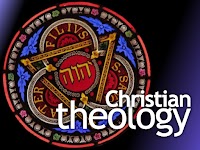
Whenever I talk about the creeds,
And churches still have faith statements. And still require their members to sign off on ’em. Not always declare “I believe…” etc.; but if you don’t believe what they do, it’s gonna create problems. So they’re still practicing a form of creedal Christianity; it just doesn’t take the very same form as the ancient creeds. But man alive, are they similar.
For one thing, most faith statements include just about everything that’s in the creeds. Usually that’s because they’re just duplicating
Face it: The creeds are pretty much at the back of all orthodox Christianity. And if they’re not—if, like many an Evangelical, you claim you got your beliefs directly out of the bible, not the creeds—okay, maybe you think you did. I certainly thought I did. Believing Jesus is both
More precisely: Stems from the ancient Christians who realized, “Oh, we gotta emphasize how Jesus is both, ’cause too many heretics are claiming Jesus is more one than the other, or is only one but not the other.” Who realized overemphasizing Jesus’s divinity at the cost of his humanity, or humanity at the cost of his divinity, gets him wrong. Who realized this wrongness undermines our relationship with him in a big way, so we’d better get this part right, at least.
And generations of Christians thereafter have taken up the ancient Christians’ cause. Including Christians who have no idea this cause didn’t originate with the Christians who wrote the bible, but the Christians a few centuries later who began to realize how important it is, gathered with other Christians across the civilized and uncivilized world to hash it out, and came up with the creeds.
Adopting the creeds, instead of writing a faith statement.
Third Day and Brandon Heath perform Rich Mullins’s “Creed.” Heath’s YouTube channel
Rich Mullins turned
Mullins added a chorus:
- And I believe what I believe
- Is what makes me what I am
- I did not make it; no, it is making me
- It is the very truth of God
- and not the invention of any man
Of course skeptics are gonna say it is so the invention of any man; the invention of many men, namely the bishops and patriarchs of the church councils, and the Roman emperors who presided over ’em.
Once again, I will point out everything in the creeds is found in bible. Okay, the bible was written by humans too,
Arguably a church’s faith statement is trying to do the very same thing. “Our church believes these things…” because they wanna make sure they’re consistent with historic and biblical truths about God.
But too often a Christian’s individual beliefs, our personal theology, is not based on any faith statement. Not the creeds, nor even our church’s faith statements. They’re
- sometimes because she’s confused about
trinity and doesn’t understand how Jesus is also the One God—and certainly doesn’t wanna say Jesus is a second God; - sometimes because she’s hung up on Jesus’s title “Son of God” and thinks that makes him a demigod;
- sometimes because was raised
pagan, Jewish, Muslim, or by various other people whodeny Jesus’s divinity and insist only the Father is God, and she finds it a hard belief to shake; - but often because she prefers the idea that Jesus is somehow less than divine.
You’ll find most Christians do this. Contrary to skeptics’ fears about “organized religion,” and claims that we Christians just swallow our church’s teachings whole, you’ll find most of us do no such thing. (Nor should we! Churches have been wrong.
Nah, not really. We have our own ideas—about a whole lot of things. We have certain things we choose to believe despite anything Pastor, or the pope, or Jesus himself, teaches. Lookit all the Christians who have no intention whatsoever of
But when it comes to Christian theology and orthodoxy, there are certain things every Christian should learn to embrace. If we’re gonna authentically follow Jesus, and gonna claim him as our Lord, we have to embrace these ideas. They’re just part of the package.
And that’d be the creeds. I don’t get to be on any committee which decides whether they’re part of Christianity or not; they already are. I don’t get to reject them yet call myself a legitimate Christian; they (plus
If any self-described “Christian” claims they get to define their own Christianity (or “the bible” does, but oy vey do they cherry-pick the bible) and not the creeds, they’re not legitimate. We gotta have some standard for orthodoxy around here, and it’s
Same with heresy. You’re gonna find plenty of Christians calling this or that practice “heresy,” or this or that belief “heretic.” That’s a power trip on their part: They figure it’s not enough to say those Christians are wrong; they gotta escalate things to the level of “heresy,” and since most Christians presume (wrongly) that heretics go to hell, they’re basically threatening those Christians with whom they disagree, with hell. Yep, it’s evil of them.
Because heresy is not simply any ol’ instance of Christians doing it wrong; it’s self-described Christians who are willfully violating orthodox Christianity. It’s a church which claims
Again: I don’t define orthodoxy and heresy. The creeds do. My duty isn’t to sort that stuff out; it’s to embrace what Christians oughta believe, strive to believe it, and let these new beliefs help make me more like Jesus.

